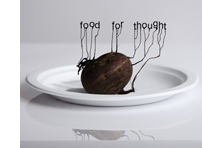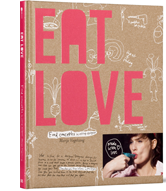At the site of the famous restaurant The Fat Duck, cuisinier Heston Blumenthal takes the opportunity to outline some of his philosophies and chef statements regarding food, cooking and eating. The parallels with user experience (design) are remarkable.
“We believe that cooking can affect people in profound ways, and that a spirit of collaboration and sharing is essential to true progress in developing this potential. The act of eating engages all the senses as well as the mind. Preparing and serving food could therefore be the most complex and comprehensive of the performing arts. To explore the full expressive potential of food and cooking, we collaborate with scientists, from food chemists to psychologists, with artisans and artists (from all walks of the performing arts), architects, designers, industrial engineers. We also believe in the importance of collaboration and generosity among cooks: a readiness to share ideas and information, together with full acknowledgment of those who invent new techniques and dishes.”
(c.f. Heston Blumenthal, Harold McGee, Thomas Keller and Ferran Adria)



 on the challenges to design, setup and evaluate a user experience in hybrid contexts, i.e. physical and digital ones, of everyday life.
on the challenges to design, setup and evaluate a user experience in hybrid contexts, i.e. physical and digital ones, of everyday life.